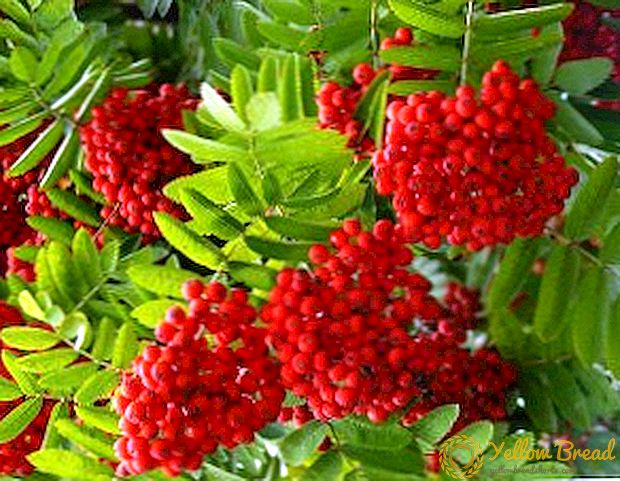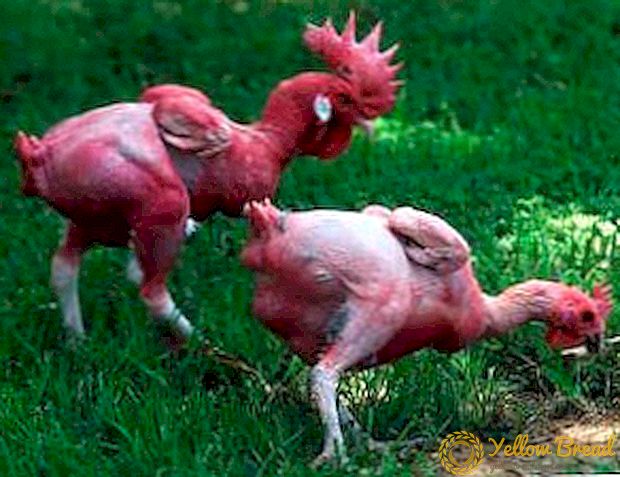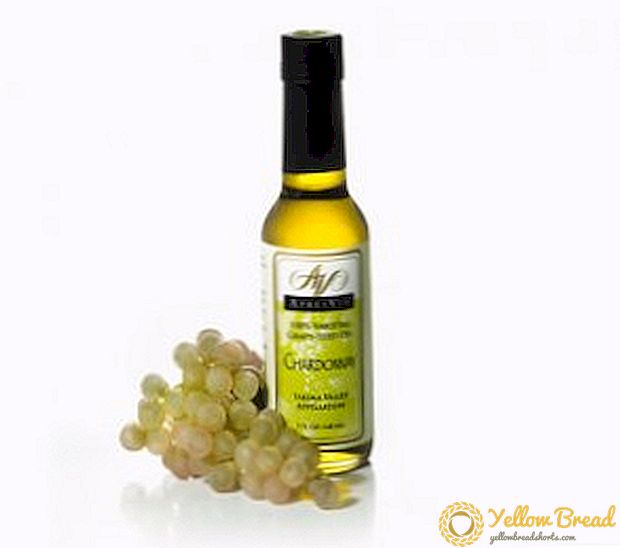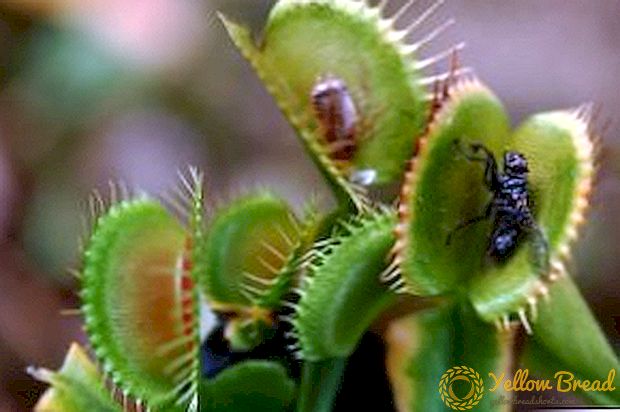 The remedy for flies, despite its narrowly specific orientation, as well as many other various anti-insect agents, belongs to the group of insecticide preparations.
The remedy for flies, despite its narrowly specific orientation, as well as many other various anti-insect agents, belongs to the group of insecticide preparations.
Today we will talk about a similar tool, designed also for the destruction of many other insects that live in premises intended for the maintenance of animals, which is called "Agita".
In this article you will find all the necessary information about the substance "Agita": instructions for use, a description of the active substance and other components of the drug, as well as safety measures when working with him.
- Description and release form
- Active substance
- Instructions for use
- Personal preventive measures
- Contraindications
- Storage conditions
Description and release form
In appearance they are a granular substance of a beige shade, which does not have a pronounced smell, dissolves well in water.
Granules are packaged in plastic jars, with a total weight of 400 g or 100 g, covered with metallized foil on top and closed with a plastic lid with a control function at the first opening. Each bank must be supplied with instructions for use.
Banks contain a label in which there is: the name of the company producing the drug, its trademark and addresses of production capacity, the purpose and name of the drug itself, the number and name of the active substance contained in it, the expiration date, the batch number, date of manufacture, animal labeling, information about the confirmed compliance and number state registration.  Number of certificate of registration PVI-5-5.7 / 02260 from 10.19.07.
Number of certificate of registration PVI-5-5.7 / 02260 from 10.19.07.
Active substance
The main active ingredient of the drug is thiamethoxam, which belongs to the group of nicotinoids. The principle of action of this substance is entero-contact.
It has a pronounced activity against all types of insects that are found in premises intended for keeping animals: flies, cockroaches, fleas, and other arthropods that are resistant to carbamate, phosphorus insecticide, and pyromat.
By its nature, thiamethoxam is an antagonist of n-cholinergic receptors,which, after entering the nerve fiber, leads to hyperpolarization of the membranes of the nerve cells of insects, as a result of which the long opening of the sodium channels occurs.

Instructions for use
The drug is applied in the form of a solution by spraying or by applying smears (paint brush).
For the first method it is necessary to pour 3.2 liters of water with a temperature of about 23-25 ° C into the spray bottle and add 400 g of Agita agent to it, mix thoroughly and proceed to direct spraying to protect against flies.
The working solution prepared in this way should be enough for processing a room of 160 square meters. The protective properties of the drug after using this method of treatment will last about 4-6 weeks.
Second way involves the manufacture of a working solution by adding 400 g of Agita preparation to 320 ml of water, which should be stirred until a homogeneous mixture is obtained. Made in a similar way, the solution is applied to the surface of the walls using brush strokes. A solution made in this way is usually sufficient for processing a room of 160 square meters.
The protective properties of the drug after using this method of treatment will last about 6-8 weeks.
First, the prepared solution is applied to the places, especially by insects (llama ceilings, walls located on the sunny side, window frames and glass).
In places where application of the drug for safety reasons is unsafe, it is recommended to hang cardboard or plastic strips that have previously been treated with a solution of the substance. Next, you should process the walls.
Do not apply the product on walls with a porous structure, too dirty or just whitewashed walls. Before proceeding to work, all cattle contained in the room must be brought outside.  All the remnants of food, water and related equipment are removed outside, it is worth covering all the milking equipment with plastic wrap and collecting all the eggs if processing is done in the house.
All the remnants of food, water and related equipment are removed outside, it is worth covering all the milking equipment with plastic wrap and collecting all the eggs if processing is done in the house.
The preparation divorced to a ready condition needs to be used within one days. If there is at least 30 minutes between the periods of use of the drug - it is worth re-stir the solution, since a part of it is precipitated.
Personal preventive measures
Studies of the impact on the human body make it possible to attribute this drug to the 4th hazard class (low hazard substances), which means that at the concentration recommended for use it does not cause a sensitizing and local irritant effect.
However, when working with him it is still necessary to observe personal precautions, namely to wear personal protective gowns, gloves, goggles and individual masks or respirators.
In the process of making and using the Agita working solution, it is necessary to avoid getting the solution or granules on the mucous membrane of the eyes, mouth, open skin and respiratory organs. It is forbidden to eat, smoke and drink at this time.  After completion of work it is necessary to thoroughly wash your hands under running water and rinse the mouth cavity. If you spilled the granules, you must remove them with a broom, and thoroughly wash the area of contact, pre-abundantly moistened with water.
After completion of work it is necessary to thoroughly wash your hands under running water and rinse the mouth cavity. If you spilled the granules, you must remove them with a broom, and thoroughly wash the area of contact, pre-abundantly moistened with water.
If a solution of the drug or its granules got into the respiratory tract of a person, it should be urgently brought to the open space and in the presence of irritation symptoms seek medical help.
In case of contact with the open area of the skin, wash the area with plenty of water under running water using soap. In case of contact with the mucous membrane of the eyes or mouth, flush the site with plenty of water under running water for several minutes.
The solution remaining after the treatment of the premises must be disposed of far from the grazing areas of cattle and water sources.The container containing the substance must not be used for household purposes; it must be disposed of with other household waste. 
Contraindications
It is forbidden to hand over the treatment of drinkers and feeders, as well as any surfaces with which animals, feed, water and other food will be in contact.
It is not recommended to treat people suffering from disorders of the respiratory system (bronchial asthma, chronic obstructive pulmonary disease, chronic bronchitis, etc.), as well as pregnant women.
Storage conditions
The substance should be stored in a place inaccessible to sunlight and excess moisture, away from children and animals. Recommended storage temperature is from -10 ° C to + 30 ° C. The recommended shelf life is 6 years.
So, hopefully this article has helped you come to a unanimous opinion, whether you need to use this tool. Remember that with careless use of poison for flies can also serve as a poison for your pets.
 Therefore, scrupulously follow all recommendations that are given in the instructions.
Therefore, scrupulously follow all recommendations that are given in the instructions.






